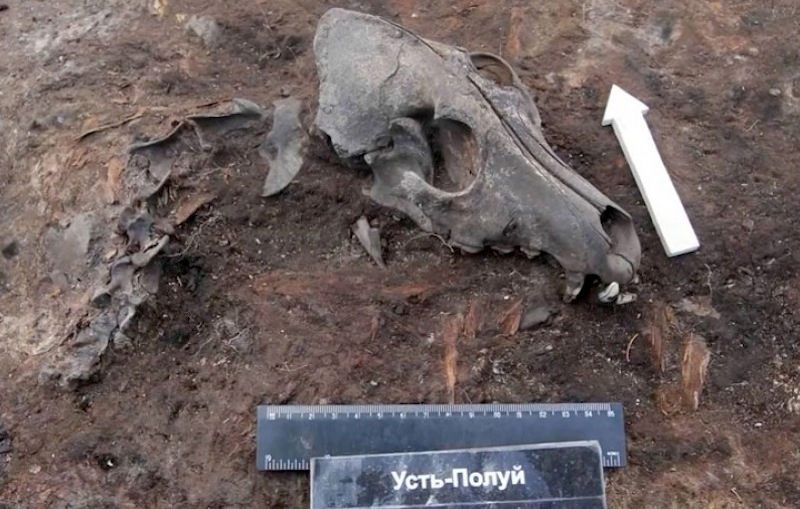Found: More Dog Skeletons at a 2,000-Year-Old Canine Graveyard
People both depended on dogs and ate them.

Dog bones. (Photo: University of Alberta/Robert Losey)
Not far from Salkehard, Russia, archaeologist Robert Losey is digging up dog bones. As Live Science reports, Losey, an associate professor at University of Alberta, recently uncovered “the carefully buried remains of five dogs.”
The site where Losey works, the Ust-Polui archaeological site, is far north, close to the Arctic circle. The people who lived there millennia ago depended on dogs to survive. They had teams that pulled sleds and helped them hunt for reindeer. But Losey’s research has shown, the people who lived in this area likely ate dogs as well: some of the bones he’s found have cut marks on them, indicating that they were butchered.
The five newly discovered skeletons are part of a growing collection of finds at this site. At least 115 dogs were buried at this site, Losey told LiveScience. That’s an unusually high concentration of dog burials. And some of them were very carefully placed into the ground. In some cases, “the dogs were being treated just like people when they died,” Losey has said.
Every day, we highlight one newly found object, curiosity or wonder. Discover something amazing? Tell us about it! Send your finds to sarah.laskow@atlasobscura.com.




















Follow us on Twitter to get the latest on the world's hidden wonders.
Like us on Facebook to get the latest on the world's hidden wonders.
Follow us on Twitter Like us on Facebook